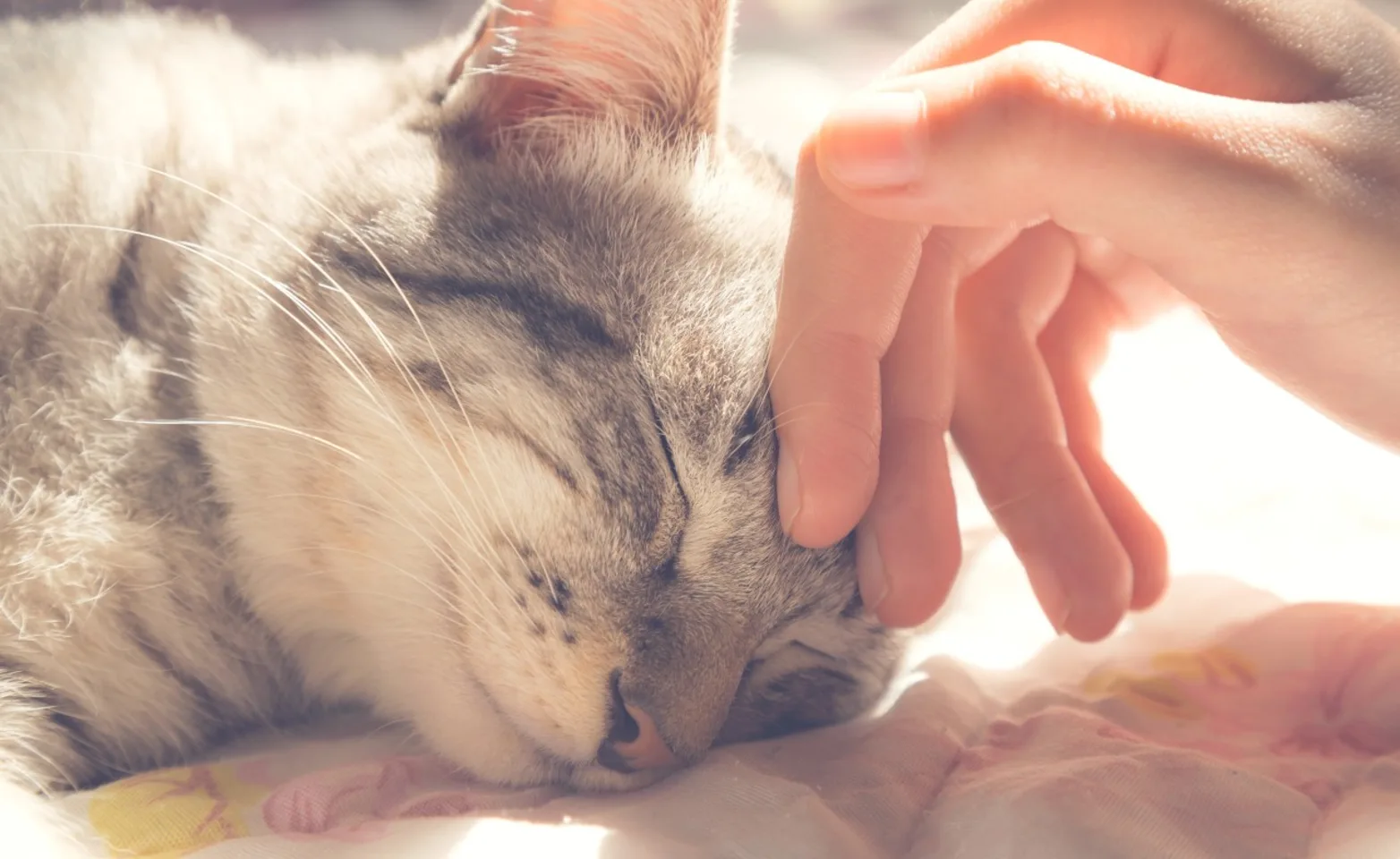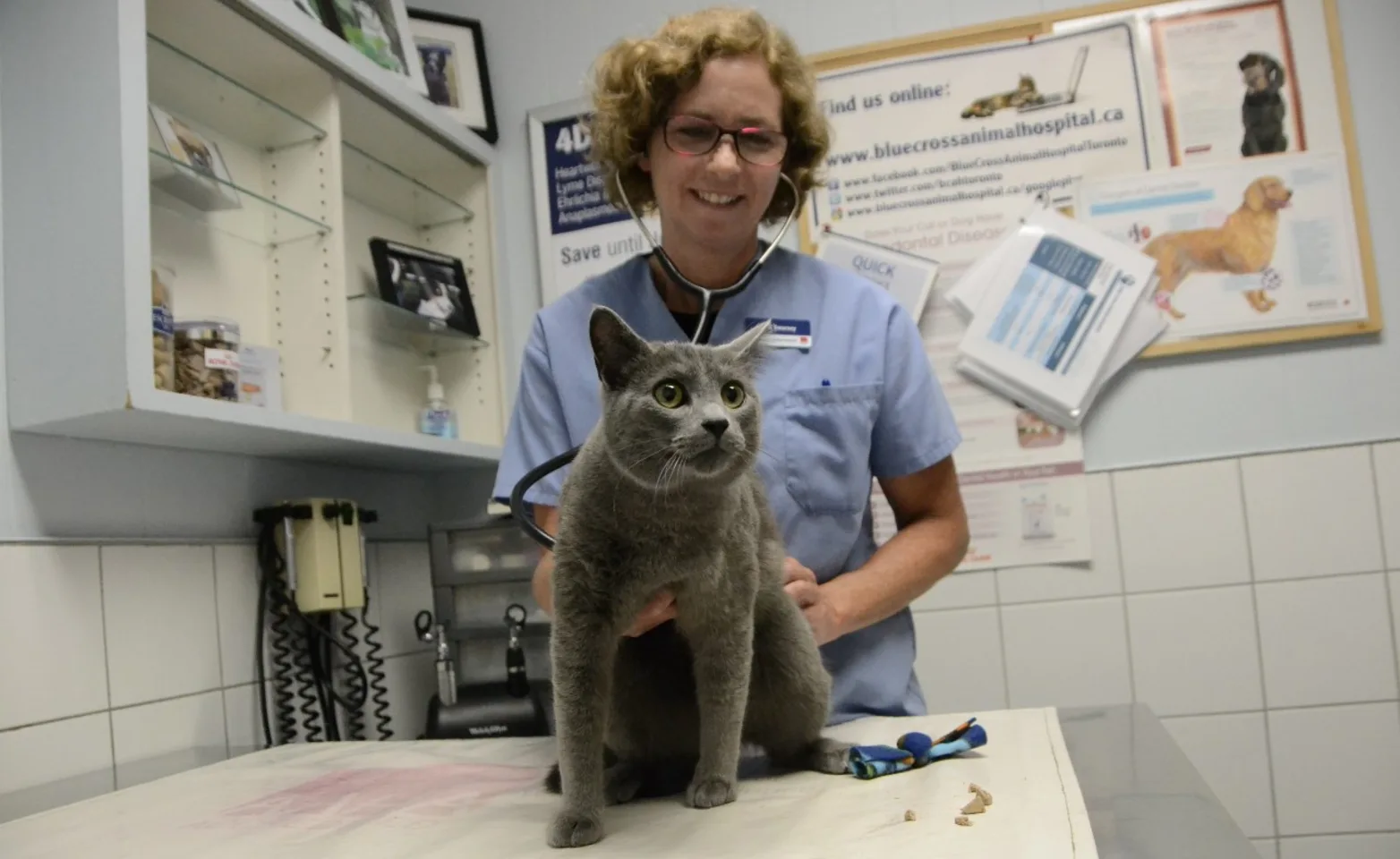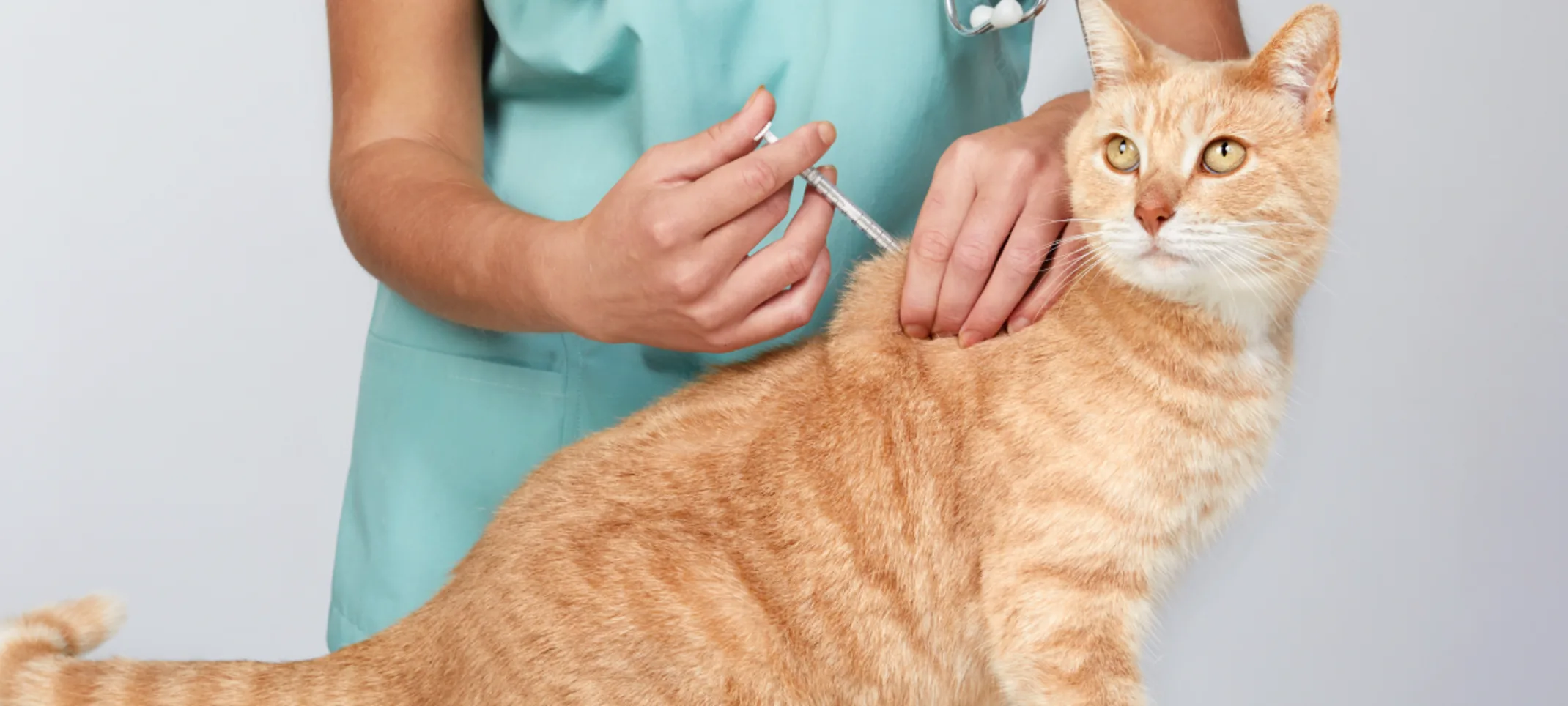Blue Cross Animal Hospital

Why You Should Vaccinate Your Cat
There is no doubt that vaccinations have made a huge difference in the spread of infectious disease for both people and pets. In the third world, Rabies is still a constant, fatal threat to people and animals because vaccines are not available.
It has always been the goal of Blue Cross Animal Hospital to recommend vaccines that are needed for individual cats, rather than having a one-size-fits-all protocol.
Increasing concerns about vaccinations have caused people to question whether vaccines are safe for their cat or needed at all. We believe that they are safe, and we know that they are needed to prevent outbreaks of life threatening diseases such as Panleukopenia in cats. As well, vaccines are needed to prevent diseases which can be transmitted to humans, such as Rabies.
When to Vaccinate your Cat: Our Up-to-Date Vaccination Schedule
As much as they are life savers, greatly improved vaccines and on-going research have prompted us to re-visit our vaccine protocols over the years.
We used to vaccinate annually for the “Core Vaccines”. Several years ago we changed to every other year.
Now we have changed to a need-based protocol based on the latest recommendations from The American Animal Hospital Association and the World Small Animal Veterinary Association and the International Society of Feline Medicine. These bodies follow research and disease trends to determine which vaccines should be considered Core and which should be given only for pets at risk.
It has always been the goal of Blue Cross Animal Hospital to recommend vaccines that are needed for individual cats, rather than having a one-size-fits-all protocol. For instance, we do not routinely vaccinate cats for Feline Leukemia if they are going to be indoors. We don’t have one blanket protocol that fits all our patients.
In simpler terms: we recommend your cat get the vaccines he or she needs when they are needed.
We still strongly recommend that your cat have an annual health exam. Some vaccines may be given on alternate years, and the annual exam is a thorough exam of many aspects of your cat’s health, not just vaccination.
What Vaccines Does My Cat Need?
When see your cat for their annual visit we will give them a thorough physical examination and discuss their health and activities. We then recommend the vaccines that are needed that year based on your individual cat’s needs and set or re-set the schedule for the coming years.
In determining which vaccines should be given to a particular pet, we break vaccines into two categories, Core and Non-Core. Vaccines classed as Core are the ones that all cats should get as they are at risk no matter their lifestyle, for example Panleukopenia. The non-Core vaccines are ones that should be added if your cats’s activities are likely to expose them to the disease, for example Feline Leukemia for outdoor cats.
There are vaccines for Feline Immunosuppressive Virus (FIV) and Feline Infectious Peritonitus (FIP) neither of which we recommended.
Core Vaccines
Rabies (even for indoor cats, see below)
Feline Rhinotracheitis
Panleukopenia
Calici Virus
Non-Core Vaccines
Bordetella
Chlamydia
Feline Leukemia: For cats that go outdoors.
Indoor Cats and Rabies
Why should indoor cats be vaccinated against Rabies? Rabies is a fatal, neurologic disease in animals and people. The biggest carrier of Rabies in Toronto is bats. A rabid bat is not a normal bat. It could well fly in a high-rise window or basement door. Cats love to play and a rabid bat swooping around or falling out of the air would be a perfect toy. One bite and your un-vaccinated cat has Rabies. If the cat has Rabies, any humans who come in contact with him or her is exposed.
Just such a thing happened recently in the US. An indoor cat died of Rabies and the whole family and many of their friends had to have post-exposure treatment. That could have been avoided with a vaccination for the cat.
Note that city by-laws require that all pets be vaccinated for rabies.

Congratulations on your new kitten! We can’t wait to meet your fluffy new friend and help you put them on the road to a lifetime of healthy, happy companionship.
Over the first few months of his or her life, we hope your kitten will visit Blue Cross Animal Hospital regularly, establishing both a strong foundation for their future health, and a great relationship for you and your kitten with our wonderful, caring team.
Each visit includes a thorough physical exam as detailed below, appropriate vaccinations, parasite control, and nutritional, weight and behavioural counseling. You may request your choice of veterinarian for each visit.
These visits are your chance to ask your veterinarian one-on-one for any advice or help you may require with your kitten. You may want to know about kitten life stages, future procedures, food or toys. Of course if you have any questions outside of your appointments, you can contact us at (416) 469-1121, or [email protected], and we’ll be happy to help.
Kitten Visit & Vaccination Schedule
Kittens need to have a series of vaccinations in the first four and a half months of life. These will be administered as required at each of the four Kitten Health visits.
8 Weeks
Physical Exam
A nose-to-tail check-up of your kitten, as detailed above, to confirm that your kitten is developing properly and healthy for vaccination.
Vaccination
FVRCP Initial Vaccine: Feline Viral Rhinotracheitis, Feline Calicivirus and Feline Panleukopenia
Parasites: Fecal Exam
Please bring a fresh stool sample in a clean baggie to your first visit, for parasite testing.
12 Weeks
Physical Exam
A nose-to-tail check-up of your kitten, to confirm that your kitten is developing properly and healthy for vaccination.
Vaccination
FVRCP Booster Vaccine: Feline Viral Rhinotracheitis, Feline Calicivirus and Feline Panleukopenia
Feline Leukemia Initial Vaccine: Recommended if your kitten is to go outdoors when grown.
16 Weeks
Physical Exam
A nose-to-tail check-up of your kitten, to confirm that your kitten is developing properly and healthy for vaccination.
Vaccination
FVRCP Booster Vaccine: Feline Viral Rhinotracheitis, Feline Calicivirus and Feline Panleukopenia
Feline Leukemia Booster Vaccine: Recommended if your kitten is to go outdoors when grown.
18 Weeks
Physical Exam
A nose-to-tail check-up of your kitten, to confirm that your kitten is developing properly and healthy for vaccination.
Vaccination
Rabies Vaccine: The Rabies vaccination includes a Certificate of Vaccination and a collar tag for your puppy.
About Indoor Cats
Many people think that indoor cats do not need vaccines. This is not true. The most common carriers of Rabies in Toronto are bats. A rabid bat is not behaving normally. It will fly into places it would not normally go. It will land places it wouldn’t normally land. From a basement door to a balcony door many storeys up in an apartment building, a bat can fly in and potentially infect a cat.


